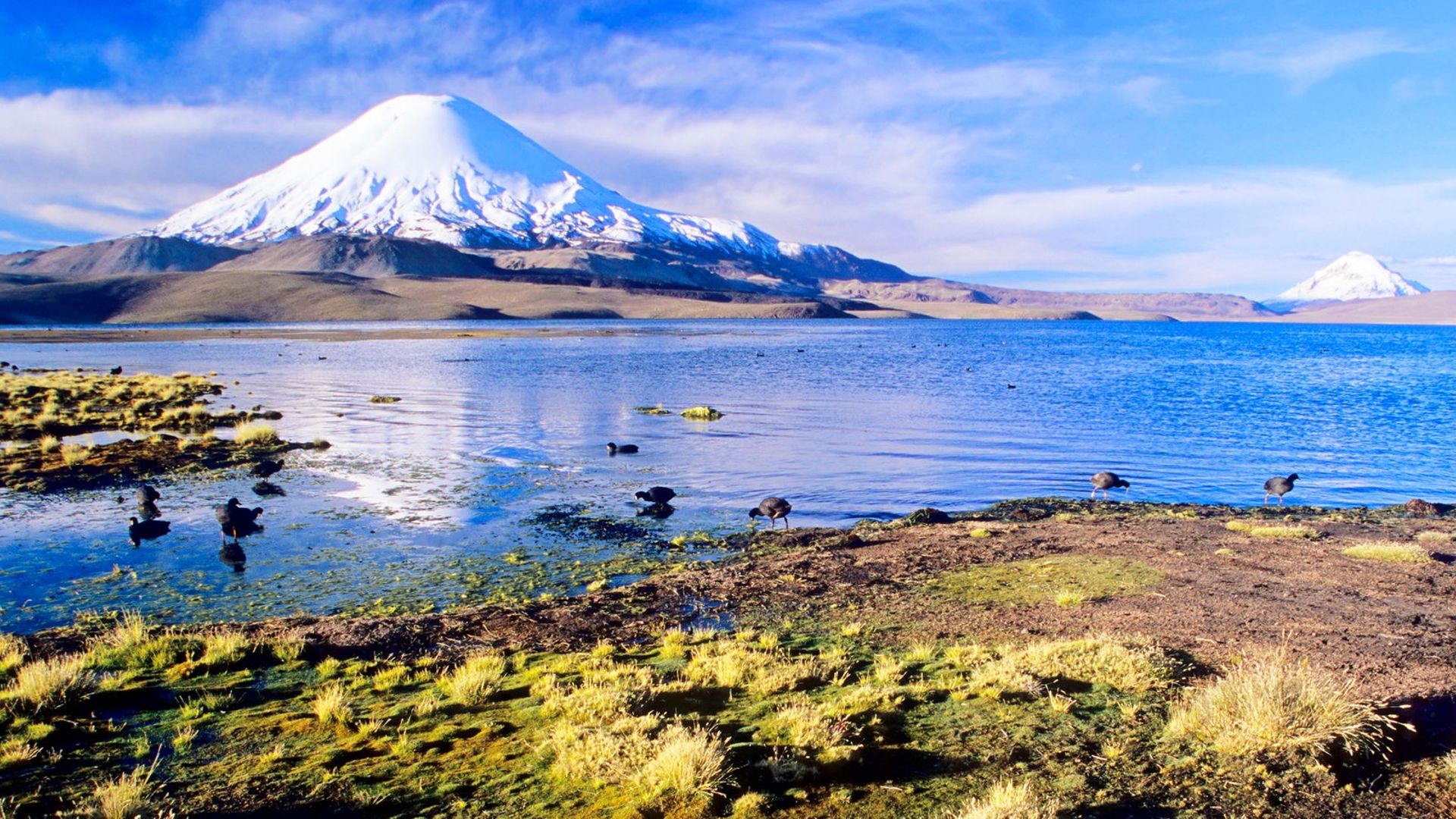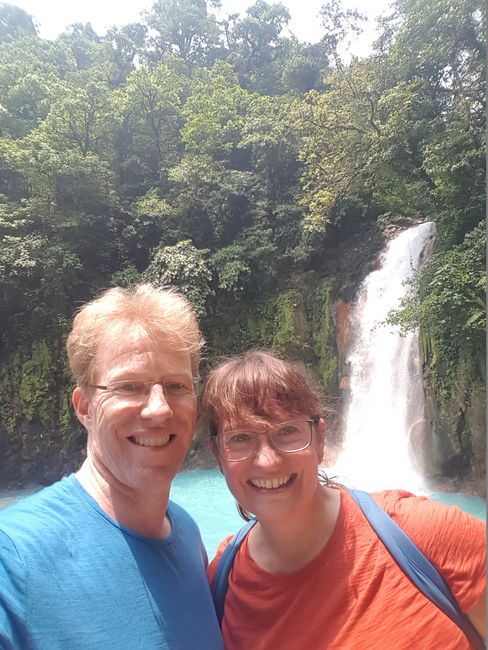Uyuni - The largest salt flat in the world
Published: 19.06.2018
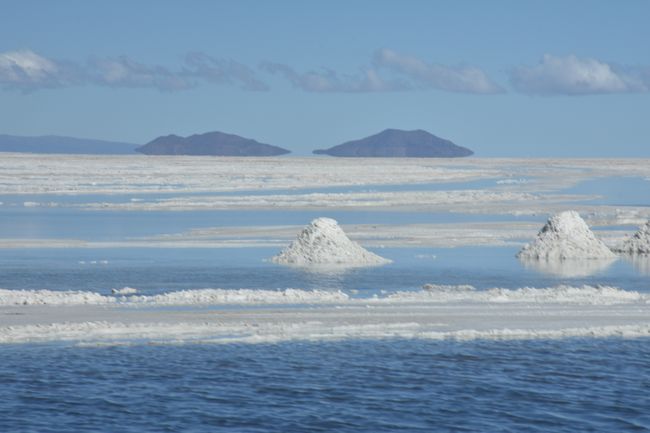
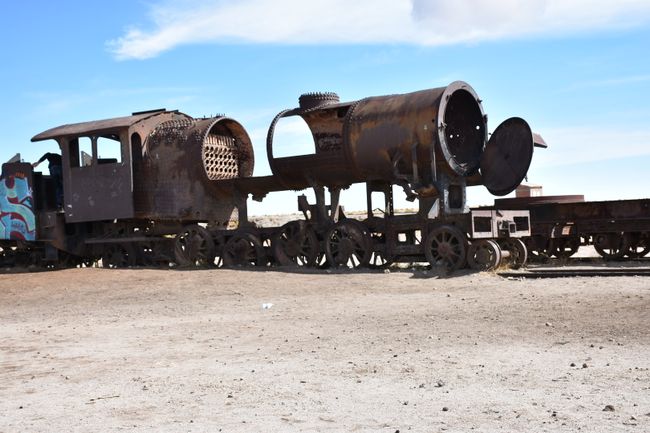
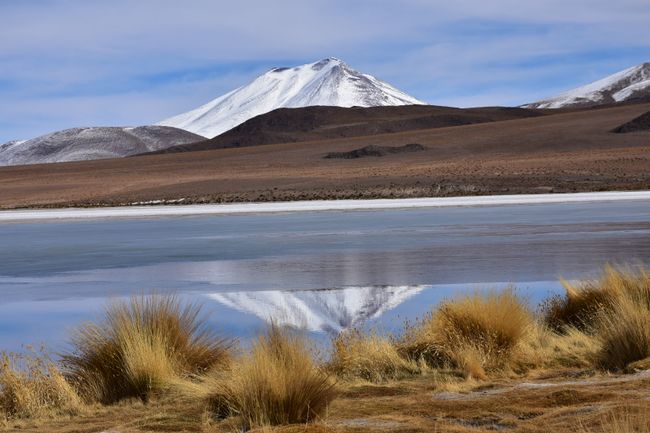
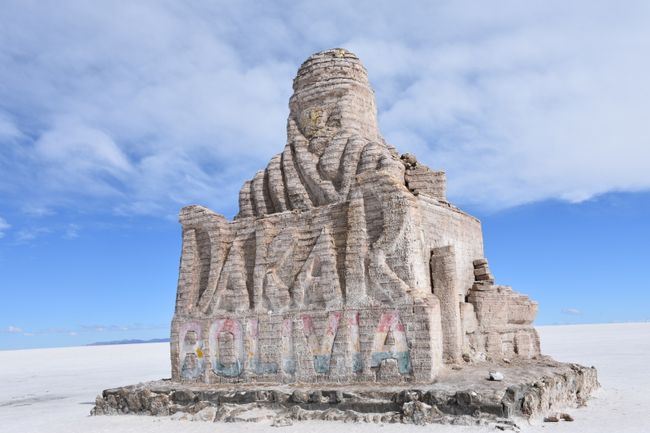
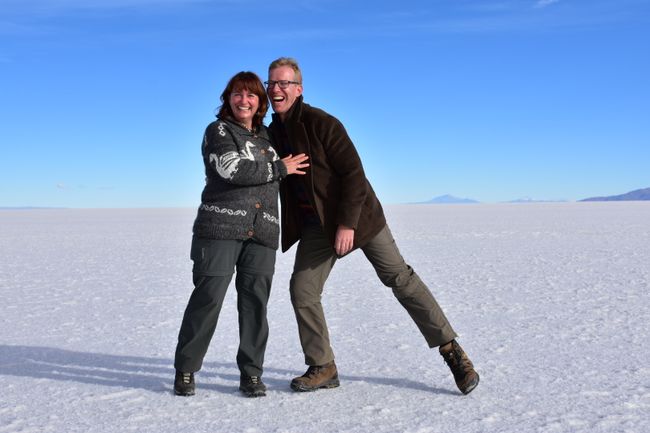
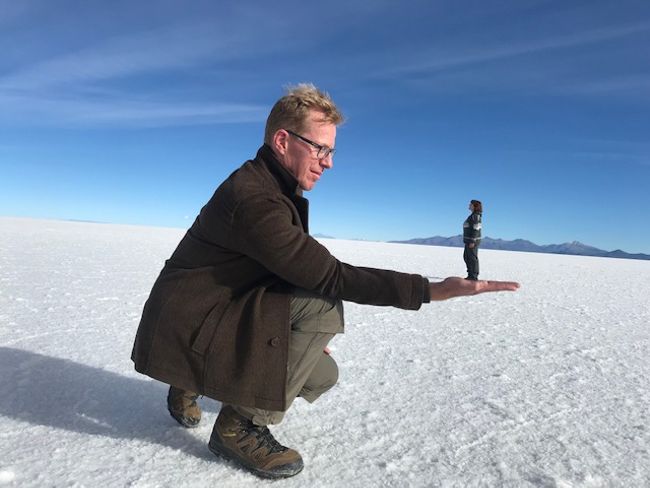
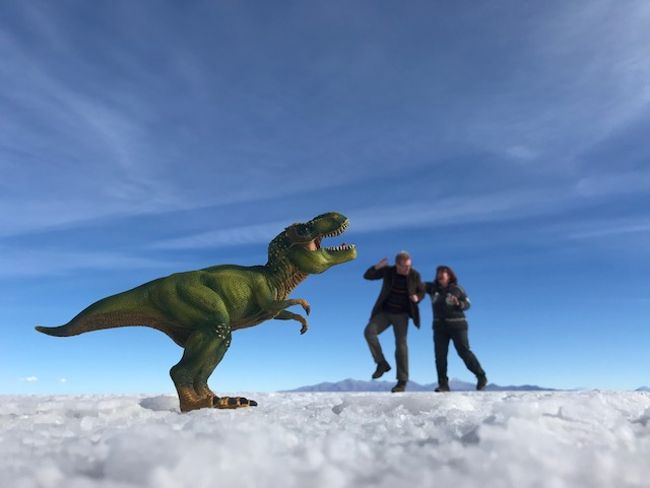
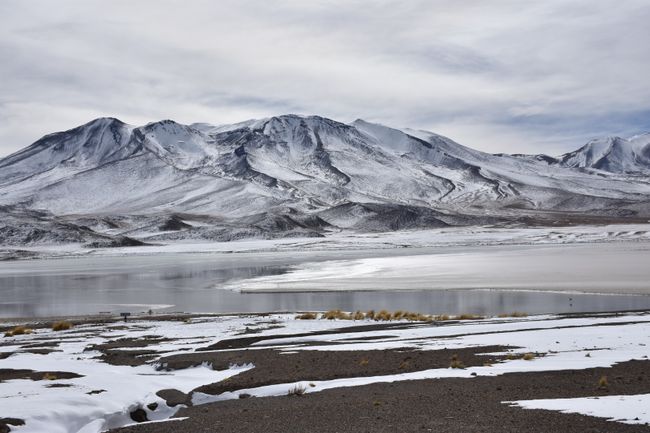
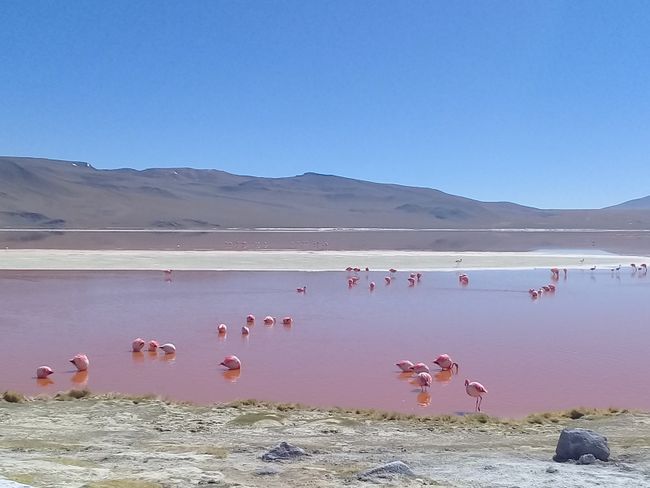
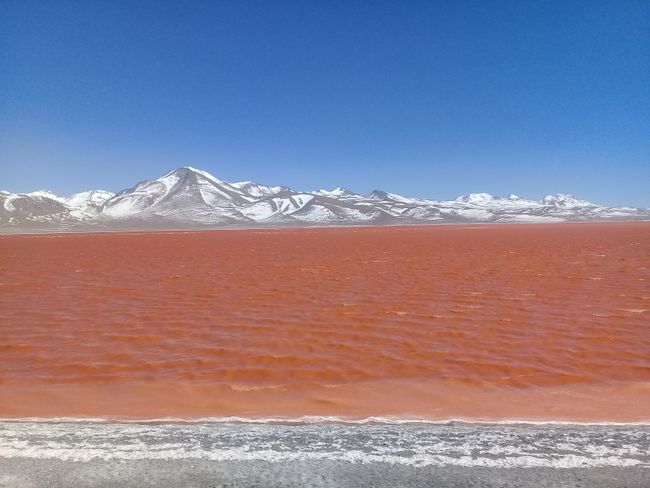
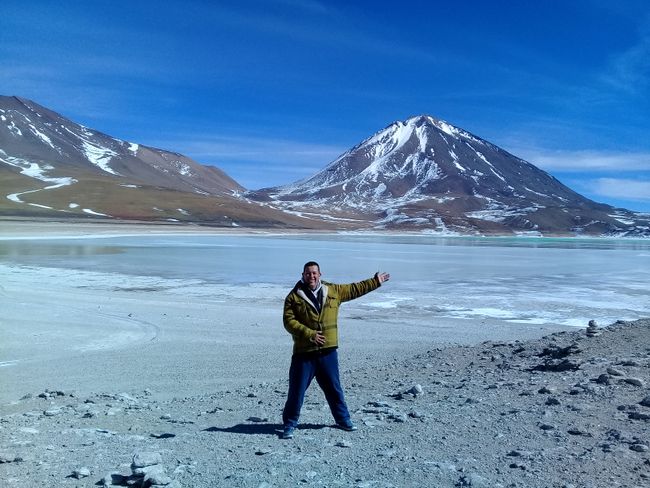
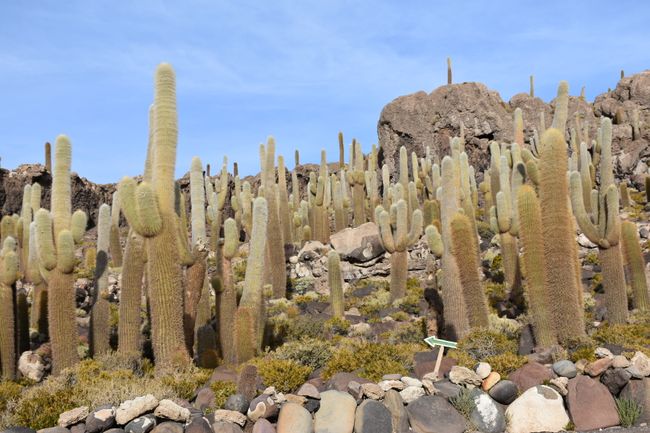
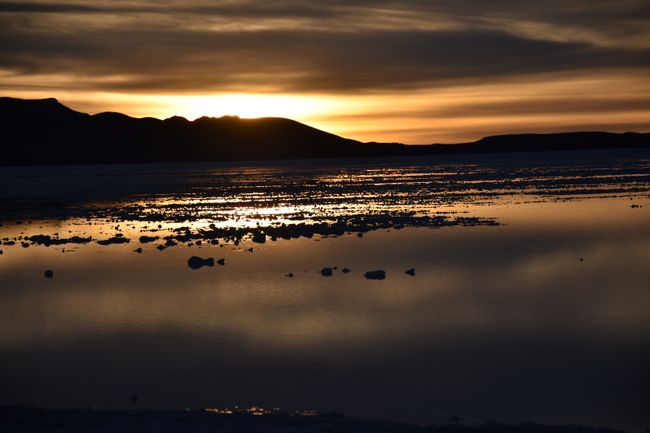
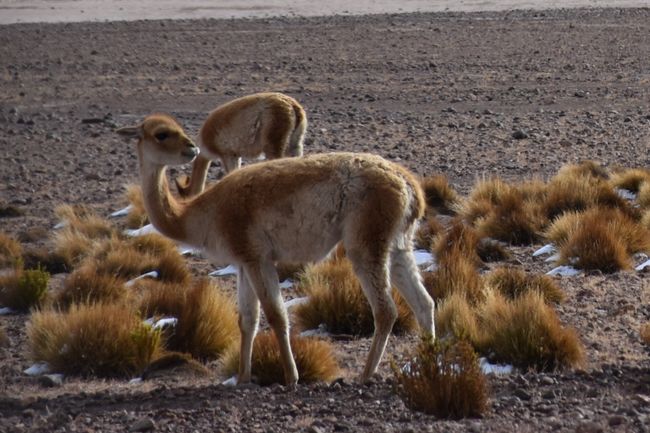
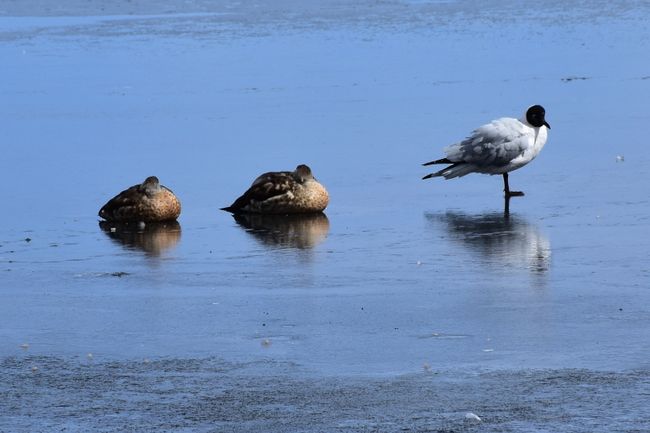
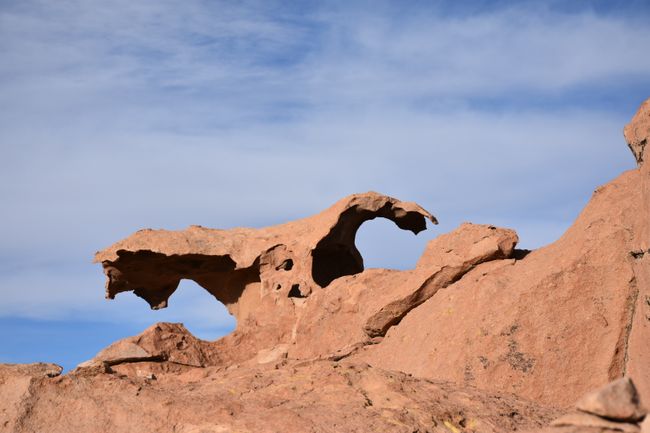
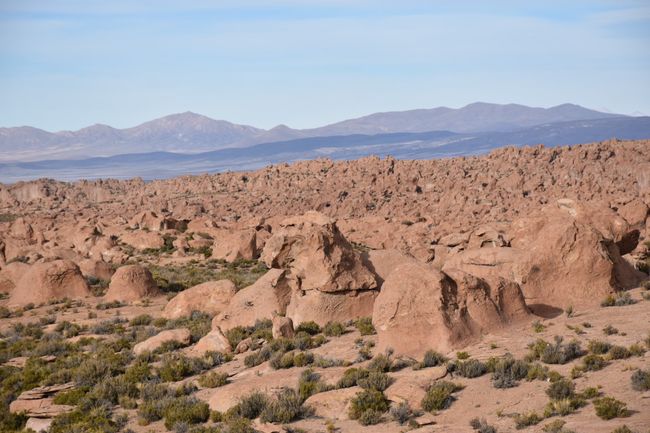
Subscribe to Newsletter
After another terrible flight with thunderstorms (this time in a small plane = 54 people), we landed in Uyuni, a truly desolate city. It's a good thing we only planned to stay here for one night. In the morning, we set off: first, we visited the train cemetery. These trains were used in the last century to transport numerous minerals. Then we drove to the salt flat. The salt flat was formed when the Atlantic Ocean receded due to tectonic plate movement. All that was left behind was salt, coral, and some 'islands', such as the cactus island. The salt flat was very impressive. Everything here is flat and white - until the horizon, and that is blue. The cactus island is centuries old. The plants grow 1cm per year. The tallest cactus is 12m high.
The next morning, we visited a very old pre-Inca cemetery and then went to 3 different lagoons. One of them was home to flamingos, but unfortunately, I couldn't capture them with my camera - I hope for the photos from our guide.
Unfortunately, that's when the problems started: it had snowed at the pass, the geysers, and the green and red lagoons. We spent the coldest night of our lives because it was below 0°C in the room. It's a good thing we brought our sleeping bags. Since the pass was closed, our planned crossing to San Pedro de Atacama (Chile) was not possible. There was a lot of excitement because we had booked a flight to Santiago from there 3 days later. But our guide was resourceful and the tour group was understanding. They took us to another border crossing (= a longer detour) and we arrived in San Pedro de Atacama as planned, one of the driest deserts in the world.
Subscribe to Newsletter
Answer (5)
Gregor
Wäre auch zu schön, wenn alles glatt liefe. Ich bewundere bei Dir liebe Petra, dass Du so viele Flüge kreuz und quer und in so kleinen Maschinen gut überstehst. Was macht Deine Flugangst? Es grüssen Euch ganz lieb Mama und Papa Ulla und Gregor.cornelia
Das klingt nach Spannung und Erlebnis pur. Das alles zu meistern- da sind die Problemchen hier dann echt winzig für Euch in Zukunft.
Wärmende Augenblicke und weiterhin vollen Genuss pur wünschen wir.Oliver
Petra: Tja ihr Lieben ich bin eben ein Hasenherz mit Löwenmut. Irgendwie geht es eben. Südamerika ist toll - bis auf die Flüge. Immer sind irgendwelche Berge, die das Flugzeug in Turbulenzen stürzen. Liebe Grüße PetraMelanie
Die Bilder in der Salzwüste sind ja toll geworden!! Wie kamt ihr denn auf die Idee mit dem T-Rex? :D
Gut dass noch alles geklappt hat. Ich hoffe die restliche Reise verläuft problemlos für euch. Oliver
Das war die Idee unseres Guides. Wir sind auch froh, dass wir in Santiago sind - neben Rio die bisher schönste Groß- bzw. Hauptstadt. 